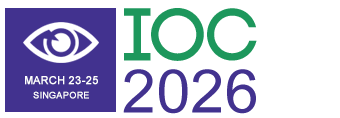Title : Patients’ perspective on an innovative use of QR code linked patient information video on cataract surgery
Abstract:
Introduction
This study aimed to explore (1) patients’ subjective utility for a patient information video (PIV) on cataract surgery and (2) analyse the use of Quick Read (QR) code as a mode of delivery of the PIV.
Methods
A total of 500 patients were included. All patients were given a paper form of patient information leaflet as the standard of care (SoC) in addition to a digital QR code to access a supplementary PIV. The questionnaire explored the patients’ understanding of cataract, risk and benefits of cataract surgery as well as experience accessing and using the QR code.
Results
A total of 321 responses were collected (64% response rate). The majority were female (55%) with mean age 75 years. 69% (n=222/321) managed to watch the video. Statistically significant association was reported between prior experience with QR code and ability to watch the video (p<0.001). The most common reasons for not watching the video were no device (n=54/99, 54%). 91% of patients who managed to watch the video would like to have more healthcare videos in the future.
Using the Likert scale, 89% (n=199/222) patient agreed or strongly agreed the video was clear and easy to understand. 84% (n=187/222) reported they understood the treatment options along with the risk and benefits. Importantly, 87% (n=194/222) agreed that they felt free to choose not to have surgery if they did not want to. Overall, most of our patients (n=170/222, 76%) acknowledged PIV easier to understand as compared with paper format information, with merely any patient reporting the video missing information the paper covered (n=2/222).
Conclusion
The provision of patient information video supplementation as a part of the cataract surgery referral pathway is an innovative method of providing patient information in a more interactive way, with positive feedback from patients.
Audience Take Away Notes:
Cataract surgery is the most performed surgery in the UK. Although highly successful in technical and perceived value terms, no surgery is risk free and all elective surgery requires comprehensive informed consent. This enables shared decision making. We piloted an innovative approach of proposing a service adaptation to the cataract referral pathway locally by streamlining direct-optometrist referral to listing for cataract operation with the use of patient information video (PIV) accessed via QR code.
To our knowledge, most studies to date examine the efficacy of digital healthcare services in enhancing clinical outcomes without focusing on patient engagement in its specificity. Our study aimed to explore the patients’ perspective on the use of the PIV to enhance the consent process for cataract operations and subordinate to that to analyse the ease of use of QR code as a mode of delivery of that PIV, being conscious of the potential for digital inequity or other forms of discriminative disutility of this chosen medium and form of delivery.
Our work presented a humble but dramatic change that has revolutionized our practice in NHS Tayside. Since papers are "written by scientists, but read by clinicians" we think this simple report would be of interest and could lead to rapid and fairly cost-free improvement around the UK.




